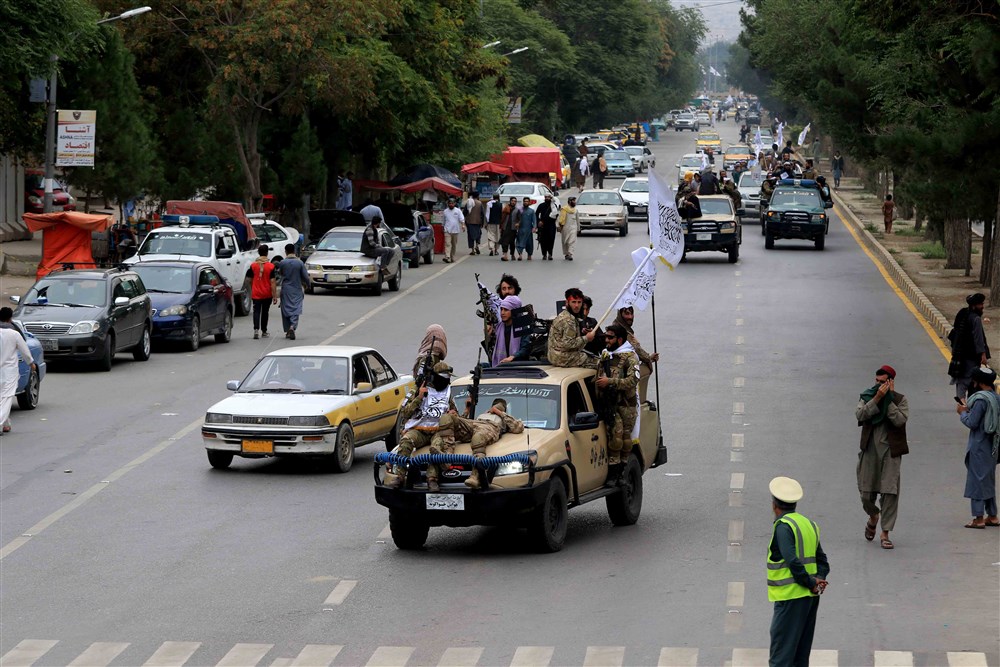The IPI global network strongly condemns the Taliban’s arrest and detention of Reza Shaheer, a prominent Afghan journalist working for the Kabul-based Rah-e-Farda TV channel. IPI calls for Shaheer’s immediate release, and reiterates its appeal to the international community to prioritize the development of rapid visa support schemes for all journalists at risk, including for all Afghan journalists, media workers, media advocates and their families seeking safe refuge.
Shaheer was arrested by Taliban forces in the Shahjoi district of Zabul province on June 17, while traveling back to Kabul from Iran. He had previously fled Afghanistan following the Taliban’s takeover of the country in August 2021 and had reportedly been forced to return to renew his Iranian visa, which had expired. He was taken to an unknown location; his family have been unable to reach him since his arrest. Taliban provincial officials denied reports of his arrest.
“Reza Shaheer worked in the field of journalism for more than a decade and is one of the most well-known journalists in Afghanistan”, said the Afghanistan Journalists’ Support Organization (AJSO) in a statement condemning his arrest.
Prior to his exit from Afghanistan, Shaheer had two previous clashes with the Taliban. On April 19, 2022, Shaheer was beaten and arrested by Taliban agents while reporting on a suicide attack at a school in western Kabul. Authorities accused him of being connected to the attack and confiscated his camera and phone. On June 3, 2022 he was accosted by armed Taliban members in Kabul while walking home late at night. He was searched, and after Taliban agents found screenshots of reports of his April arrest on his phone, proceeded to beat him unconscious.
Shaheer’s arrest follows a pattern of Taliban abuses of civil society actors that has continued unabated since the beginning of their takeover of the country. Intimidation, arbitrary detentions, and physical attacks on media figures that have remained in Afghanistan have become commonplace, as well as intimidation and raids of critical outlets. Three journalists arrested in May face charges connected to their 2019 and 2020 reporting on official corruption in the country. Female journalists have experienced even more difficult work conditions: many have been barred from press conferences and 94% of female journalists became unemployed due to Taliban restrictions on their work.
Shaheer’s plight is one shared by many other journalists who left Afghanistan after August 2021 and are living and working abroad. Many fled to nearby countries including Pakistan and Iran following the Taliban’s return to de-facto control of Afghanistan, but have dealt with complex and time-consuming visa processes. Many more have been unable to secure long-term status and protection in those countries or third states, and struggle to provide for their families and find work.
In August 2021, in a joint statement of journalism and press freedom groups, IPI urged G7 countries to evacuate all at-risk journalists and media workers and ease restrictions for journalist visas. Specifically, IPI called on the G7 to “simplify and secure the process for visa application, and collaborate with third countries when possible.” Shaheer’s arrest is a testament to the continued need to push for protections for journalists fleeing persecution in Afghanistan.
In May 2023, IPI members at the 72nd annual General Assembly during the IPI World Congress on May 25, 2023 in Vienna, Austria, adopted by unanimous vote a resolution calling on states that are committed to improving the safety of journalists – including Media Freedom Coalition (MFC) member states and partner states – to develop rapid visa support schemes for journalists at risk and requiring immediate, temporary safe haven. Effective visa schemes should also ensure that temporarily relocated journalists are able to continue their work as journalists.
“Journalists doing their job both within Afghanistan and outside of the country must receive the support they are due from the global community,” said IPI Director of Advocacy Amy Brouillette. “IPI urges the international community to provide an immediate solution for Afghan journalists who have been forced to flee for safety reasons. The arrest of Reza Shaheer by the Taliban highlights the urgent need for a rapid emergency visa scheme for journalists requiring immediate, temporary safe haven.”
